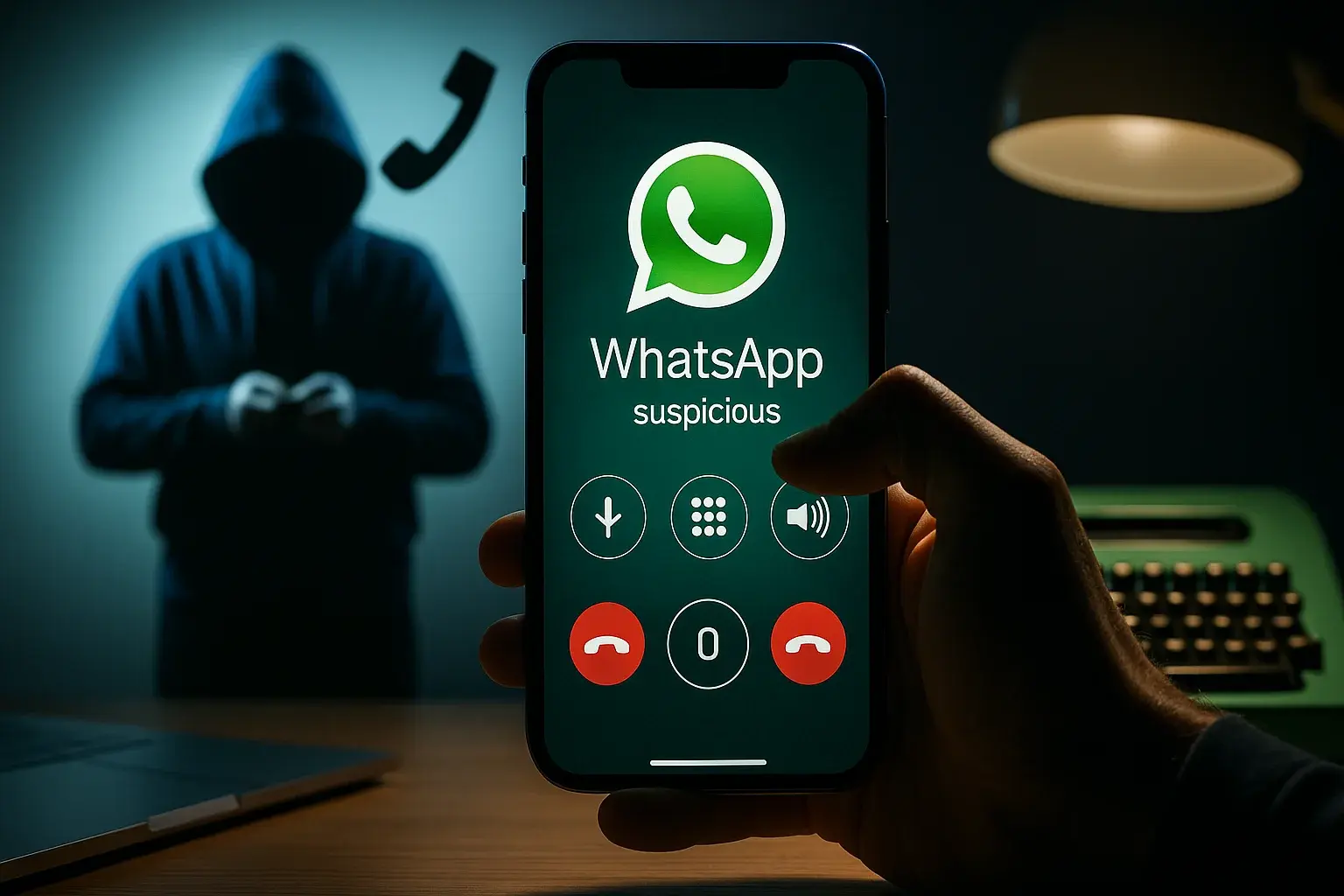If you use WhatsApp, beware: cybercriminals never rest and are always looking for new ways to deceive people. It's no longer just about strange messages or suspicious links... now they're also using your cell phone camera to steal your money. In this article, we'll tell you how this new scam works, who it affects most, and what you can do to protect yourself from this type of fraud in 2025.
How can you be scammed on WhatsApp using your cell phone camera?
This new type of fraud starts with something that seems very common: a text message that arrives via WhatsApp. At first glance, it appears to come from someone trustworthy (it may be posing as a support technician, someone from the bank, or even someone you know), and that's what makes it so dangerous.
From there, the scammers write to you via chat and, in many cases, even call you via video call. But beware: they often say they have technical problems to avoid showing their face. It's part of the scam.
During the conversation, they gradually reel you in until they ask you to activate the screen sharing feature. They tell you it's necessary to help you solve a technical problem, unblock your bank account, or complete some verification process. It sounds convincing, but it's actually a trap.
Once you activate that feature, they can see everything you do on your cell phone. That includes:
-
Your bank details
-
Passwords
-
Security codes sent by SMS
-
They can even take control of your WhatsApp account!
The most alarming thing is that many people fall for it because the scammer manages to build trust in real time. And since many people don't know how dangerous it can be to share your screen or keep a call active with someone you don't know, the risk is multiplied.

Who is most vulnerable to this type of scam on WhatsApp?
Unfortunately, those who fall victim to this type of fraud are usually older people or users who are not very familiar with the more advanced features of WhatsApp. And it's not because they are careless, they simply haven't grown up with technology like many others, and that puts them at a disadvantage.
Often, due to a lack of information or experience in digital security issues, these people are overly trusting. Scammers know this and take advantage of it to manipulate, create confusion, and convince them with well-crafted speeches.
Read more: WhatsApp launches Private Processing to Enable AI Features
Why is it so dangerous to share your screen on WhatsApp with someone you don't know?
Sharing your screen may seem harmless, but if you do it with a stranger on WhatsApp, you are opening a direct window to everything that happens on your cell phone. Literally, the other person can see what you are doing in real time: from your chats and photos to your passwords and movements in banking apps.
Imagine this: you're talking to someone who says they can help you with a procedure and asks you to share your screen. While you're browsing your banking app or receiving a verification code, they can see everything. And yes, they can copy that data right then and there.
But it doesn't end there. Sometimes, they even send you an SMS with a code (as if it were part of the “process”), and when you open it thinking it's normal, the scammer is already reading it from your shared screen. With that code, they can steal your WhatsApp account or access your banking services from another cell phone.
The worst part is that, often, the victim doesn't realize it right away, and that head start is just what criminals need to do their thing.
What are the biggest risks for you as a WhatsApp user?
The main dangers of falling for this type of scam are:
-
Total loss of your privacy: they can see your messages, photos, emails, contacts... everything.
-
Theft of your money: if they capture your bank details or codes, they can make transfers without you knowing.
-
Hijacking of your WhatsApp account: once inside, they use your profile to ask your friends or family for money.
-
Identity theft: with your data, they can impersonate you and commit other frauds.
-
Sale of your information on the black market: emails, personal photos, passwords... everything has value to them.
It all depends on how much information you show while sharing your screen. Sometimes it only takes a few seconds for them to capture something key, such as a password or card number.
Read more: FIN6 Hackers Pose as Job Applicants to Target Recruiters
How can you avoid falling victim to fraudulent video calls on WhatsApp?
Here are some super practical tips that can save you from having a bad experience:
- Don't respond to messages from strange or unknown numbers. If you don't know who it is, it's best to ignore it.
- Never share your cell phone screen with strangers. Even if they claim to be from your bank or technical support, don't do it.
- Be wary of video calls where you can't see the other person. If they don't show their face or make excuses, hang up.
- Always verify the identity of the person contacting you. Call the bank or company directly if you have any doubts.
- Enable two-step verification. Both on WhatsApp and in your banking apps. It's an extra layer of security that makes all the difference.
- If you have elderly relatives, help them. Teach them how to use WhatsApp safely and what signs to look out for to detect scams.
The new WhatsApp scam that uses your cell phone camera is not just a rumor: it is a real threat that can have serious consequences. The best defense is prevention. Don't be fooled. Digital security starts with you.

